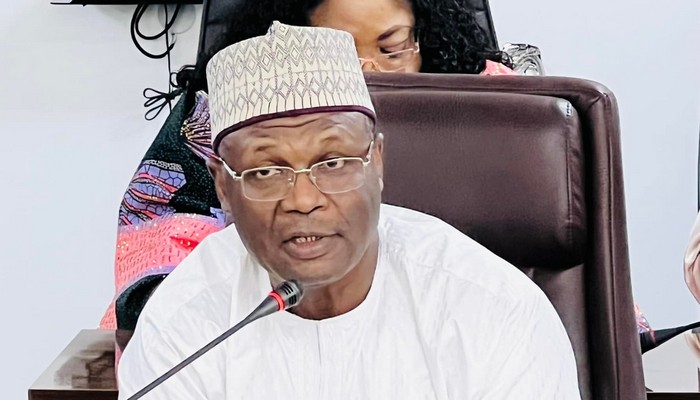
The Central Bank of Nigeria (CBN) said it has invested over N120 billion across the Cotton, Textile and Garment (CTG) value chain since the inception of its intervention programme in the industry.
CBN’s Deputy Governor in charge of Corporate Services, Mr. Edward Adamu, said on Thursday at a meeting with stakeholders in the CTG sector in Abuja that over 320,000 farmers had been financed between 2018 to date, adding that expected output for seed cotton is projected to be over 300,000 metric tonnes in 2020.
Adamu stated that this is expected to enhance the production capacity of the ginneries in producing over 102,000 metric tonnes of cotton lint, which should meet and surpass the cotton lint requirement of the textile industry in the country.
According to him, the domestic demand for cotton is currently met through local production, thereby halting the importation of cotton for the textile industry as well as increasing capacity utilisation of ginneries, which now operate throughout the year compared to months in the recent past.
The CBN deputy governor added that a total of 19 ginneries had been resuscitated nationwide and more are expected to become operational this year.
He said the apex bank’s enhanced drive toward anti-smuggling was already yielding positive result with over 15 textile smugglers’ accounts frozen.
“A lot of progress has been made, but at the same time more needs to be done to ensure that we build an inclusive economy that supports domestic production of goods and services, while offering job opportunities to teeming Nigerians.
“This assignment has been bestowed upon us all by the President of the Federal Republic of Nigeria, Muhammadu Buhari, who remains extremely supportive of the agricultural sector revolution due to its role in ensuring food security, creating jobs and stabilising the Nigerian economy,” he added.
Adamu said the revival of the textile sector remained vital to the country’s growth objectives, adding that the CBN’s interventions are designed to resuscitate and return the industries back to its glorious days of job creation, economic diversification and achieving self-sufficiency in cotton production as well as minimise and eradicate smuggling and dumping of textile goods and facilitation foreign reserves’ accretion.
On his part, CBN Director, Development Finance Department, Mr. Yila Yusuf, identified smuggling of textiles as the biggest challenge in the efforts to reposition the sector.
Speaking with journalists, he said, “As you are aware a lot of them (smugglers) their accounts have been blocked. As restitution, we are telling them to go patronise the local textile factories”.
He said the CBN was also working with the uniform services to enhance patronage of locally-made fabrics which are of high quality.
While addressing concerns raised by stakeholders on early funding to check arbitrage by middlemen, he said the CBN would ensure that farmer get funded with the right interest regime.
The President of National Cotton Association of Nigeria, Mr. Anibe Achimugu, stressed the need for farmers to access funding from the Export Development Fund (EDF) to help them remain competitive.
He said: “As we speak we have excess cotton in warehouses because the current capacity of the textile companies is not able to utilise the cotton for now. But of course, since the CBN is intervening in the textile companies, they should be able to improve their capacities going forward.
“Quality planting seeds are not available on the quantity needed. We only have an institute of agricultural research but that is not enough. But the government can open up the space for the private sector in seed production and processing.”






